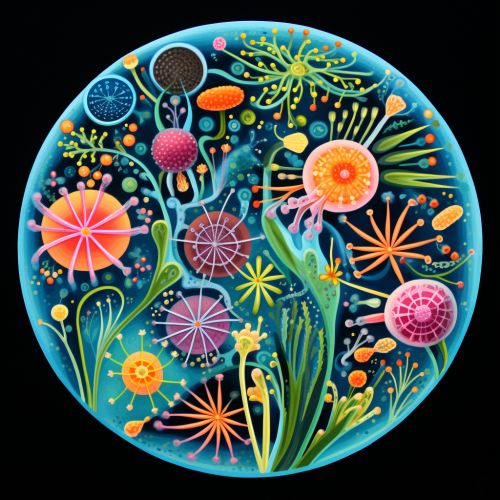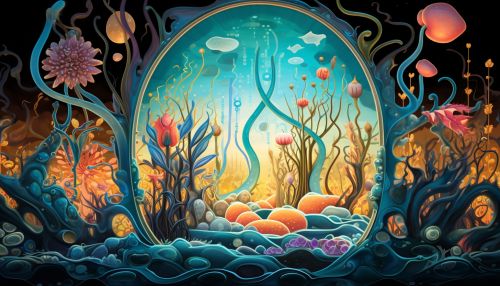Cell
Introduction
A cell is the basic structural, functional, and biological unit of all known organisms. Cells are the smallest units of life that can replicate independently, and are often called the "building blocks of life". The study of cells is called cell biology.
Cell Structure
Cells consist of cytoplasm enclosed within a membrane, which contains many biomolecules such as proteins and nucleic acids. Cells differ in their shapes, sizes, and the specific functions they perform. The two primary types of cells are the eukaryotic cells, which contain a nucleus, and prokaryotic cells, which do not.


Cell Composition
Cells are composed of water, inorganic ions, and carbon-containing (organic) molecules. Water is the most abundant molecule in cells, making up 70% to 95% of the total cell mass. The organic molecules include nucleic acids, proteins, carbohydrates, and lipids.
Cell Function
Cells perform a variety of functions, depending on their type. Some cells are responsible for gathering information about the body's environment, others are responsible for carrying out basic life processes, and others help fight disease. Each cell is designed to perform a specific function within the organism.
Cell Division
Cell division is the process by which a parent cell divides into two or more daughter cells. Cell division usually occurs as part of a larger cell cycle. In eukaryotes, there are two distinct types of cell division: a vegetative division, whereby each daughter cell is genetically identical to the parent cell (mitosis), and a reproductive cell division, whereby the number of chromosomes in the daughter cells is reduced by half, to produce haploid gametes (meiosis).
Cell Differentiation
Cell differentiation is the process where a cell changes from one cell type to another. Most commonly, the cell changes to a more specialized type. Differentiation occurs numerous times during the development of a multicellular organism as it changes from a simple zygote to a complex system of tissues and cell types.
Cell Metabolism
Cell metabolism is the set of chemical reactions that occur in living organisms in order to maintain life. These processes allow organisms to grow and reproduce, maintain their structures, and respond to their environments.
Cell Death
Cell death is the event of a biological cell ceasing to carry out its functions. This may be the result of the natural process of old cells dying and being replaced by new ones, or it may be due to disease, injury or failure of the cell to receive or interpret chemical signals.
